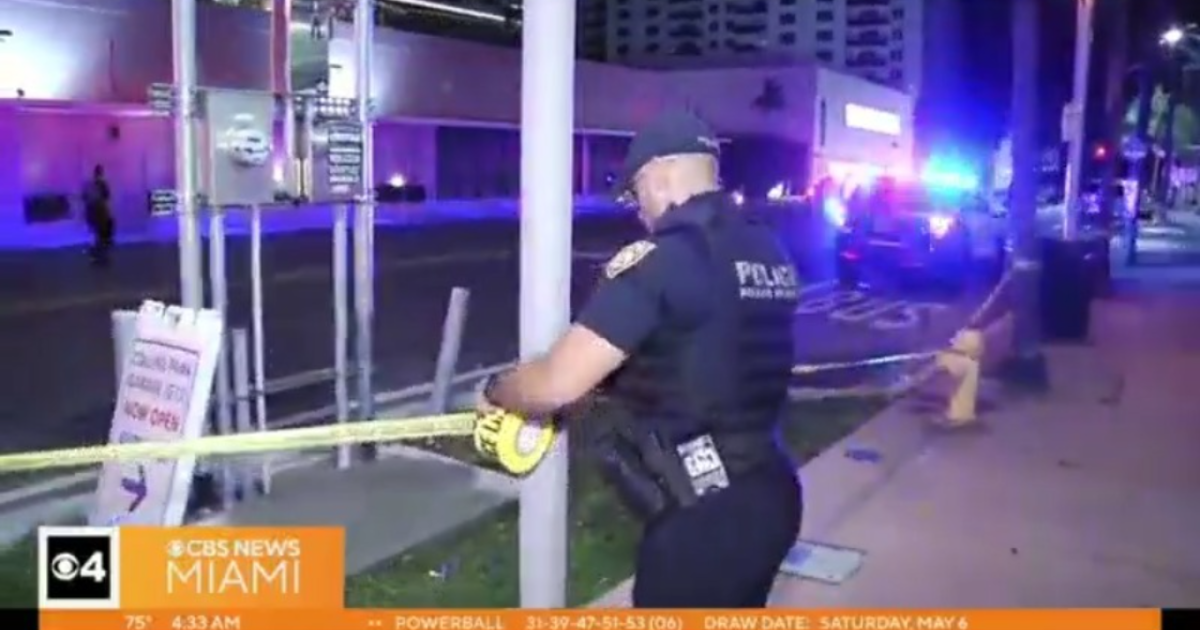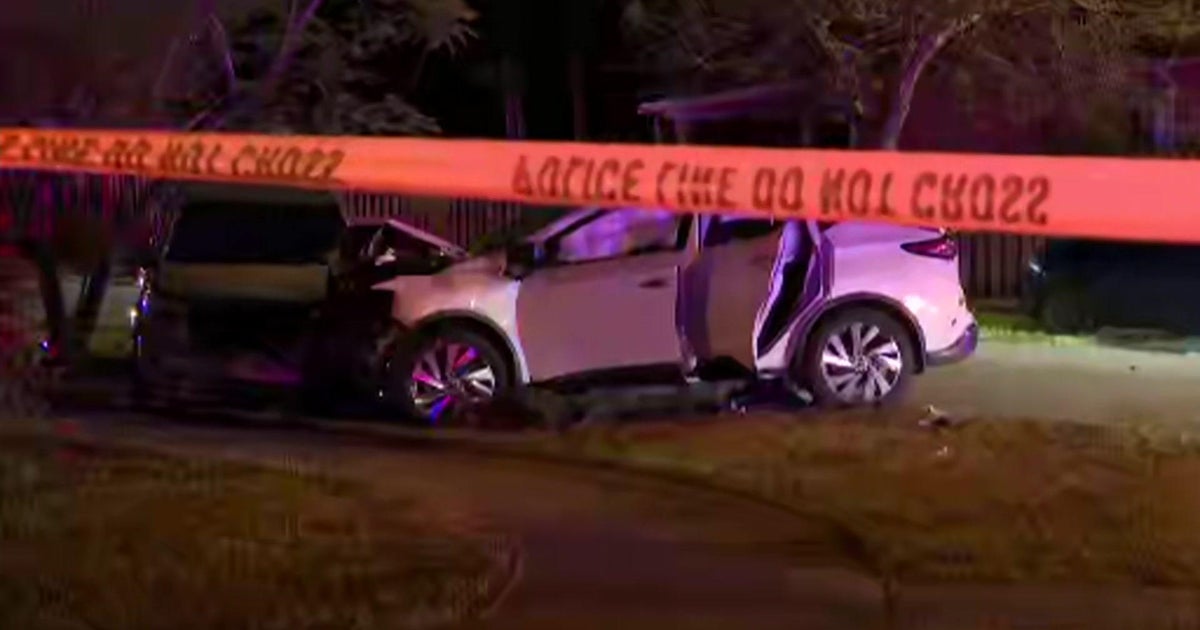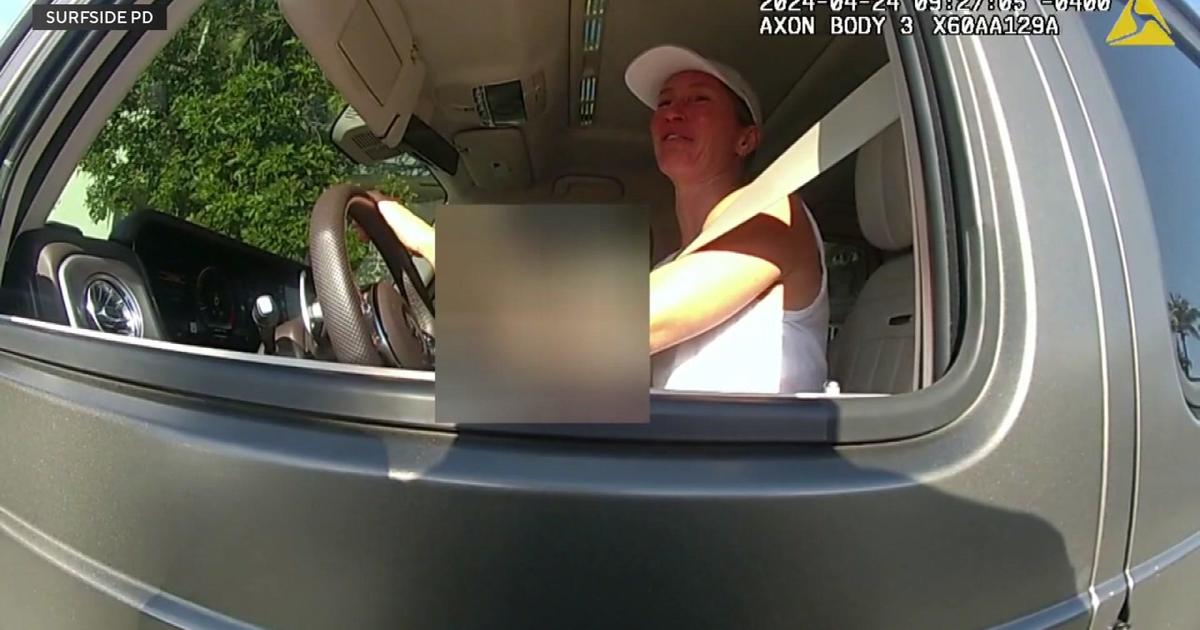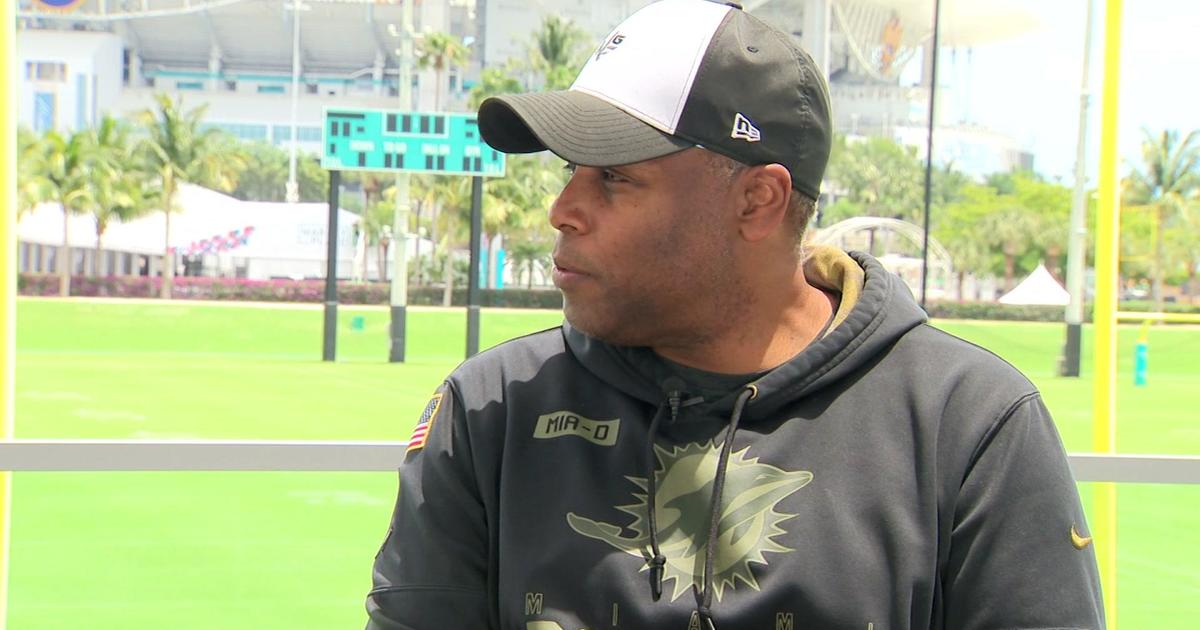Snacks For Attacks, Part 2: Detention Center Beatings Leave Kids Feeling Unsafe
Follow CBSMIAMI.COM: Facebook | Twitter
MIAMI (CBSMiami) – In 2005, following the death of 17-year-old Omar Paisley, Dale Dobuler took over as superintendent of the Miami-Dade Juvenile Detention Center. The detention center was under intense scrutiny because of the teen's death. For days Paisley had writhed in pain, suffering from a bout of appendicitis. The guards and nurses, however, ignored his pleas for help and Paisley ultimately died from a ruptured appendix.
The nurses were criminally charged while more than two dozen guards, supervisors and DJJ officials were fired.
As the new superintendent, Dobuler's mission was to get the detention center moving in the right direction. But even after the scandal and shakeup, Dobuler found serious problems remained.
"It was the worst staff culture that I had ever encountered," Dobuler recently recalled.
He said he was able to make some changes, especially while the media and the politicians were keeping the pressure up. But he found that over time old problems began to resurface.
"By the time I left in 2008," he said, "I felt that I didn't have the resources that I needed to ensure that the kids would remain safe in that facility."
It was one of the reasons he left – he said didn't want to be there when another kid needlessly died.
"I think my biggest fear always was we were going to have another Omar Paisley tragedy on our hands," he said.
Omar Paisley has now been replaced by a new name – Elord Revolte.
The 17-year-old Elord lasted just three days in the detention center before he was beaten to death in August.
Elord failed to receive proper medical attention after being attacked by as many as twenty kids in the state-run facility.
"For you to die getting jumped really means that [the guards] were not doing their job," said one juvenile who spent nearly six months there.
Since Elord's death, new and even more disturbing allegations have surfaced. Kids from the center claim guards and supervisors were paying kids with snacks and treats to dole out beatings against other kids.
One of the kids who spoke to CBS4 said he was doing so because he wanted the public, and especially parents, to know "what's really going on inside."
"Us kids could kill each other," he said. "That's really not a safe place to be, not even for kids. They should make it more safer."
It is not yet known if the kids who beat up Elord were paid by the guards to do it or if he was attacked because he was new. Regardless, the kids CBS4 spoke to said it was common for some guards to look the other way during fights.
"Sometimes the guards play along," said one of the teens. "So we let the guards know, `Yo, we're going to do this at this certain [time],' because there are some guards that are that cool. And we be like, `Oh were going to do this at this certain time.' And he'd be like, `Alright, I got you.' Some guards they don't play but we do it anyway."
The teens CBS4 interviewed said in many ways the guards act no better than the juveniles.
"They would get to the kids level," one said. "They would downgrade themselves and act like kids and fight with kids and argue with kids, instead of being more mature. And then that's when bad things happen.
"Bad things, like putting a honey bun bounty on a kid's head or just moving a kid into a unit where the guard knows the kid will be picked on or attacked.
"Sometimes they would do it for fun when they just don't like you at all or where you from," the kid said. "Because some guards, they from the street just like us."
Child advocates say one of the biggest problems is how state government operates the Department of Juvenile Justice and its detention centers.
"We're always giving them bare-bones resources," noted Marie Osborne, head of the juvenile division for the Miami-Dade Public Defender's Office. "The guard qualifications are pretty thin."
The only requirement is a high school diploma and Dobuler said it is not uncommon for guards to have criminal records themselves.
"Often you are also hiring folks that don't have a great deal of education," Dobuler said. "They may have no experience or background in child welfare, and they may have no education or training or experience in terms of dealing with the complex behavioral and psychological issues that many of these kids have."
Heather DiGiacomo, a spokeswoman for the Department of Juvenile Justice, defended the agency's hiring practices.
"The Department's number one goal is to protect Florida's youth," she said. "We work to hire people who share this mission. Juvenile arrests are now at their lowest levels in 30 years, and the number of children being arrested has declined 40 percent. The number of those considered serious, violent and chronic offenders has also been on the decline each of the past seven years."
The requirement to become a corrections officer is a high school diploma or GED, and they must be at least 19 years of age. The starting salary for a guard is just under $28,000 and they are required to take 240 hours of "extensive training," she said.
"The Department is committed to investing in our staff by focusing on providing opportunities for career advancement within the agency," DiGiacomo added.
Staffing may be another issue, according to Osborne. There may not be enough staff to operate the center safely.
"The guards are probably a little bit afraid, so they resort to less than orthodox ways to keep control, including little threats like, `Be careful or I'll put a honey bun on you," Osborne said. "They have to keep control after all they are outnumbered. The kids are clearly afraid, so one jumps then everybody jumps. They are living in a sense, `Am I going to get jumped next?' So you can imagine the whole tinderbox effect."
Osborne said it saddens her.
"And I don't understand, especially because this is taking place in the detention center where we lost Omar Paisley, and we thought never again," she said. "The only way we can make meaning out of Omar Paisley's death is to make sure this never happens again, and here we are."
Dobuler said the state needs to reexamine how it deals with children.
Is the Department of Juvenile Justice there to help rehabilitate kids and turn them around? Or is DJJ simply a training camp for kids to start learning what it will be like for them when they eventually end up in the state prison system with adults?
"The entire get tough on crime approach has failed," he said. "And we know it. What works is small community-based facilities."



